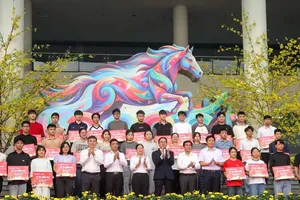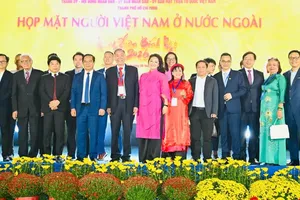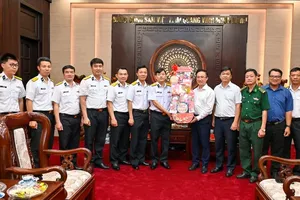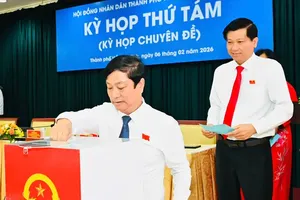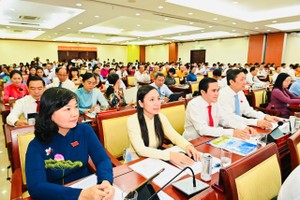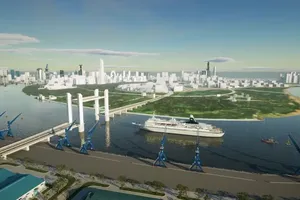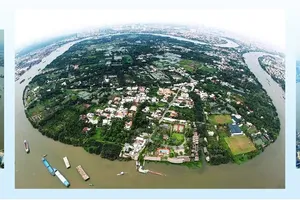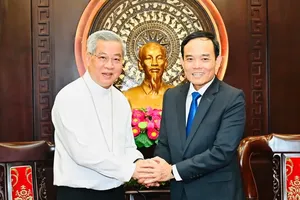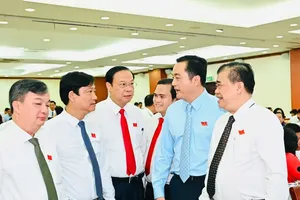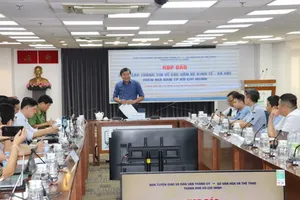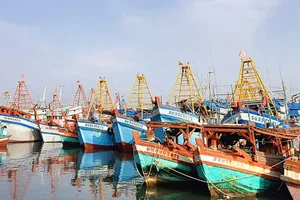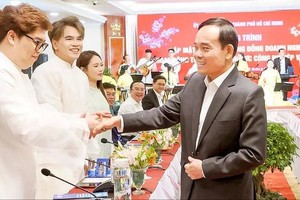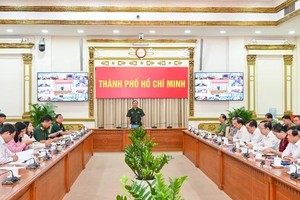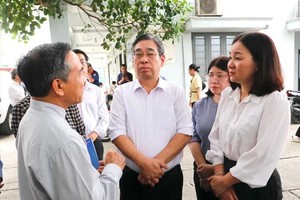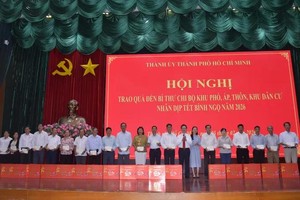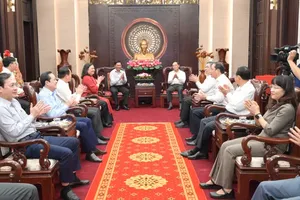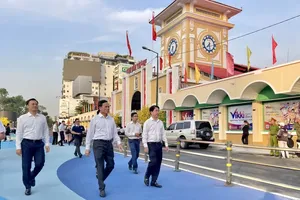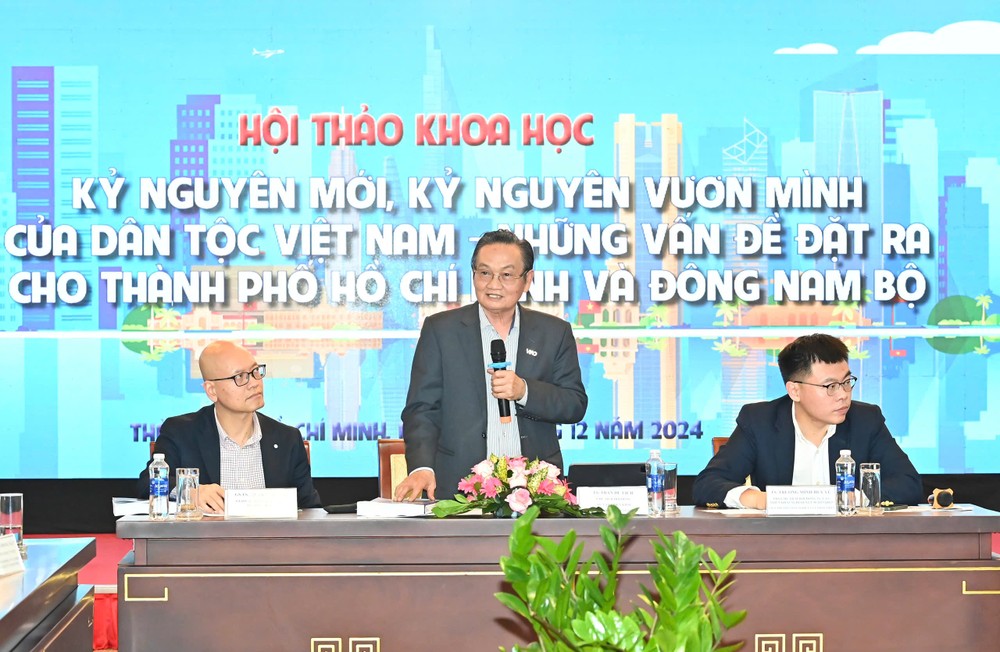
The statement was made by Dr. Nguyen Tu Anh, Director of the Center for Information, Analysis, and Economic Forecasting under the Party Central Committee's Economic Commission at the scientific seminar "A New Era, the Era of National Development – Challenges for HCMC and the Southeast Region" held by the Advisory Council for the Implementation of Resolution No.98 and the HCMC Institute for Development Studies (HIDS) on December 23.
According to Dr. Nguyen Tu Anh, countries fall into the "middle-income trap" when they fail to retain their entrepreneurial workforce, which results in the loss of both wealth and intellectual capital.
To break free from this trap, HCMC must position itself as a desirable place to live, where justice is upheld, encouraging entrepreneurs to stay, stay committed, and contribute to the city's development.
Expanding on the concept of the "Era of National Development," Dr. Nguyen Tu Anh emphasized that it is an era for the country to achieve rapid, sustainable growth and elevate its global standing. Vietnam is currently in an investment-driven phase, and to grow quickly, it needs to scale investments and improve investment efficiency to attract more capital.
To achieve these objectives, the city must streamline its administrative structure, attract capable, dedicated individuals, and create incentive mechanisms that allow civil servants to confidently contribute.
Additionally, the city must digitalize governance, focusing on improving decision-making quality, reducing decision-making time, and standardizing work processes using the "5 Clears" framework as outlined by the Prime Minister: clear person in charge, clear tasks, clear responsibilities, clear timelines, and clear results.
In the long term, Dr. Nguyen Tu Anh stressed the need for HCMC to prioritize digital infrastructure, establishing itself as a leader in this area alongside the development of extensive transportation and connectivity networks.
Beyond roads, seaports, and metro systems, the city should focus on fostering high-value service industries such as research and development (R&D), education, healthcare, arts, tourism, scientific consultancy, and commercial hubs, with commerce serving as a defining feature of its growth.
Moreover, HCMC should position itself not just as a center for the Southeast region but as a national hub—or at least the core of the Southern region—playing a critical role in interregional connectivity rather than solely focusing on intraregional linkages.
Fostering trust to protect creativity in officials
At the seminar, Prof. Dr. Tran Ngoc Anh from Indiana University commended Vietnam's impressive progress over the past 40 years of reform, transforming from a poor nation into one with rapid economic growth, leading the region and the world. However, he warned that Vietnam faces the risk of falling into the "middle-income trap."
To enter the "Era of National Development" and break free from the middle-income trap, Prof. Dr. Tran Ngoc Anh suggested that Vietnam, and HCMC in particular, need to improve public governance—transitioning to a "launchpad" that allows the country to escape this trap.
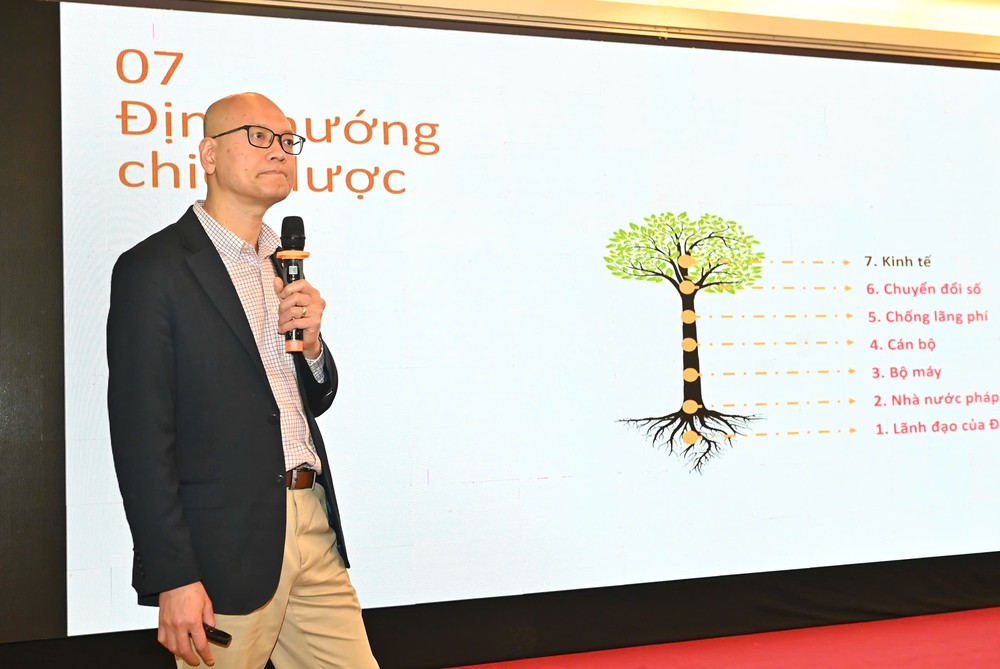
He outlined seven strategies for this transformation, emphasizing that the city must have a workforce that possesses three key qualities: capability, motivation, and a supportive environment. In other words, officials must want to work, be able to work, and be empowered to work.
The expert stressed that HCMC must make breakthroughs in these three areas during the next term. Specifically, to ensure officials have the necessary capabilities, salaries must be adequate to support a decent living, with pay increases for key officials in important sectors. Moreover, there must be a fair, objective, and accurate work evaluation system.
The city must also provide a work environment conducive to creativity, with concrete measures to protect creative officials and build trust that they will be supported in their innovations.
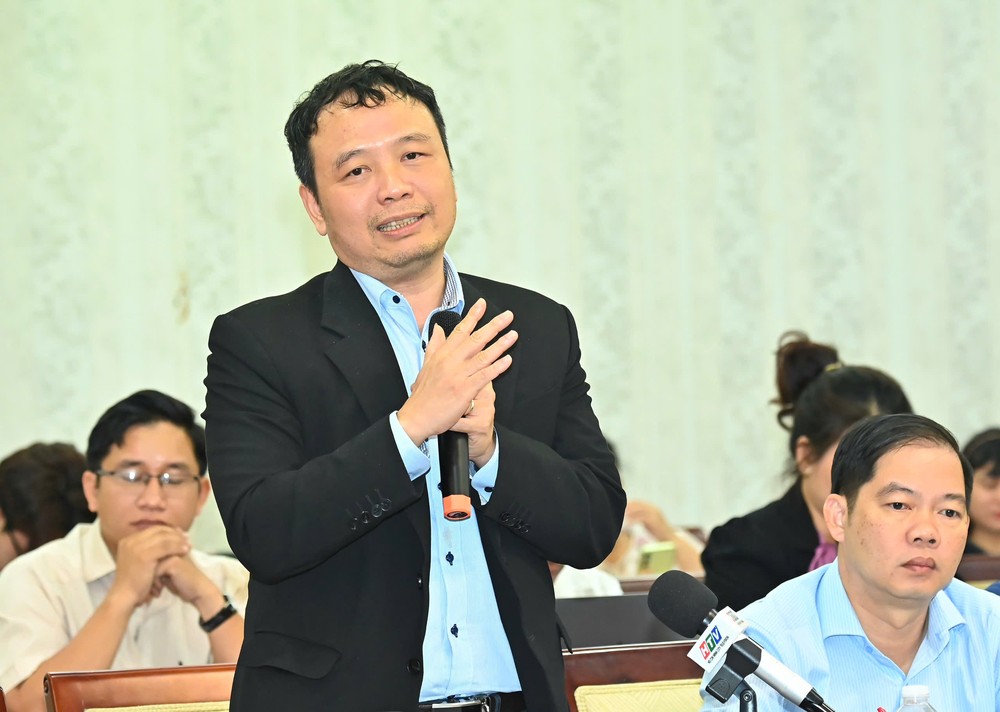
Three strategic breakthroughs
At the conference discussing HCMC's role in the era of national development, Assoc. Prof. Dr. Tran Hoang Ngan, Assistant to the Secretary of the HCMC Party Committee, expressed confidence in the city’s ability to lead the nation into this transformative period.
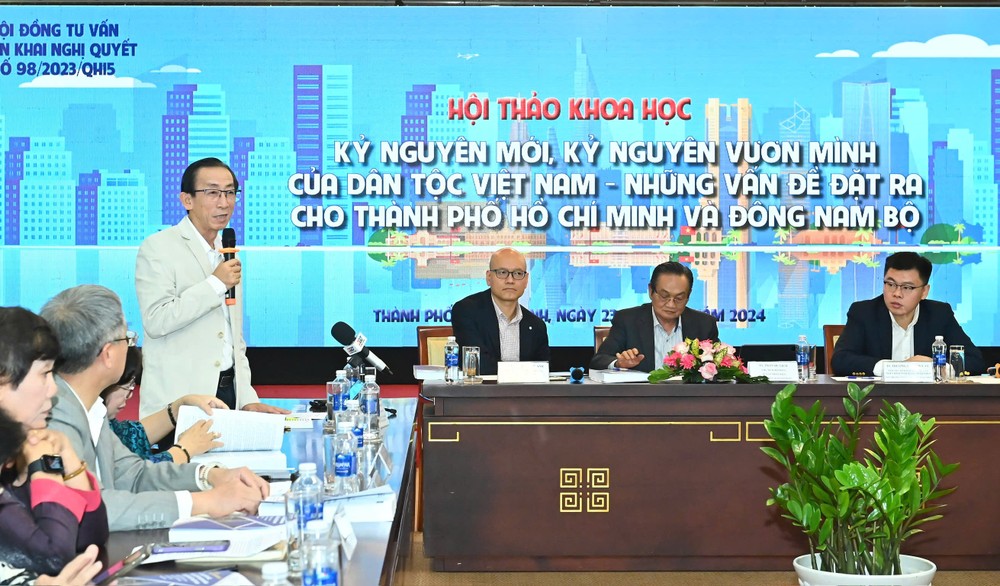
Assoc. Prof. Dr. Tran Hoang Ngan identified three key strategic breakthroughs essential for the city's advancement: institutional reform, infrastructure development, and the cultivation of high-quality human resources. These efforts are bolstered by three accelerators: science, technology, and innovation; digital transformation; and high-quality services. Additionally, the city must prioritize three sustainable pillars: green transition, culture, and tourism promotion.
He emphasized the need for a "Special Urban Law" tailored to HCMC's unique economic scale and called for a focus on developing high-quality human resources to ensure the effective implementation of critical programs and projects.
In discussing long-term strategies, Prof. Dr. Thoai Nam of HCMC University of Technology stressed the importance of attracting investment, particularly from major global corporations, to drive the city’s future growth.
The increasing demand for mega-scale data centers presents both opportunities and challenges. While many countries have established medium- and small-scale facilities, global corporations are now seeking new destinations to host mega data centers. To attract such investments, HCMC must prioritize policies on land use, clean energy, and computational infrastructure.
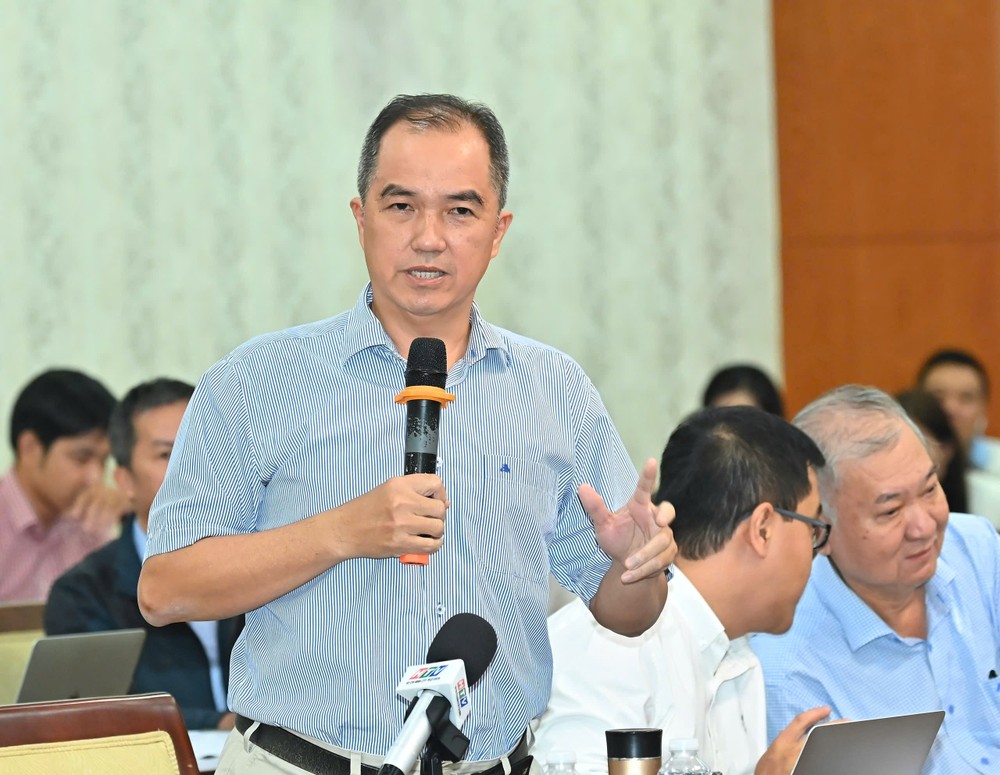
Chairman Phan Van Mai of the HCMC People's Committee emphasized the city’s commitment to becoming a regional and international data hub. This vision is being integrated into the city’s strategic planning, focusing on energy, telecommunications, and digital infrastructure.
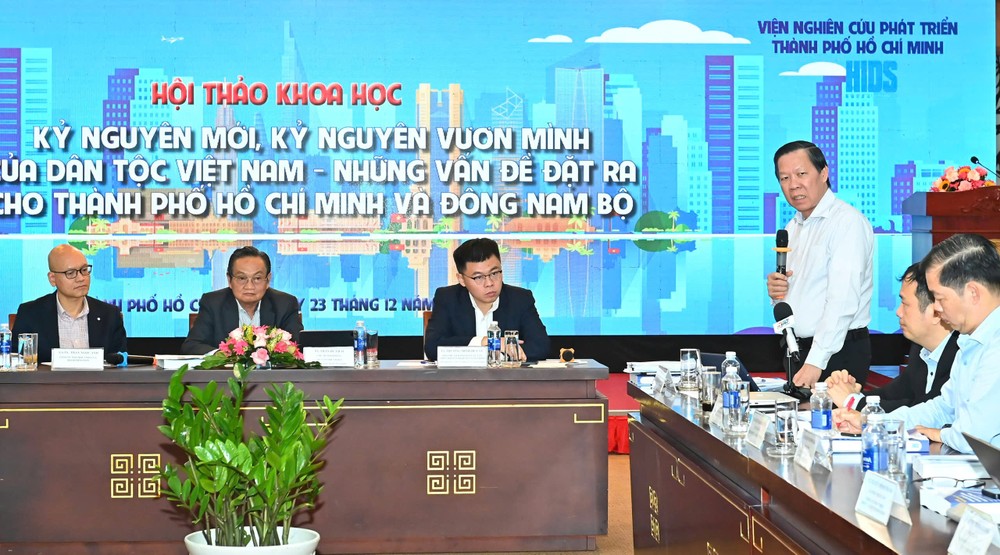
The city has already advanced clean energy solutions, including solar and wind power, and explored tidal energy. Efforts are underway to develop offshore wind energy in Can Gio and establish power transmission lines from Ninh Thuan, Binh Thuan, and the Mekong Delta. Additionally, the city has proposed the installation of international fiber optic cables in Can Gio. These initiatives will form the foundation for policies that support mega data center investments and strengthen the city’s position as a digital leader.
